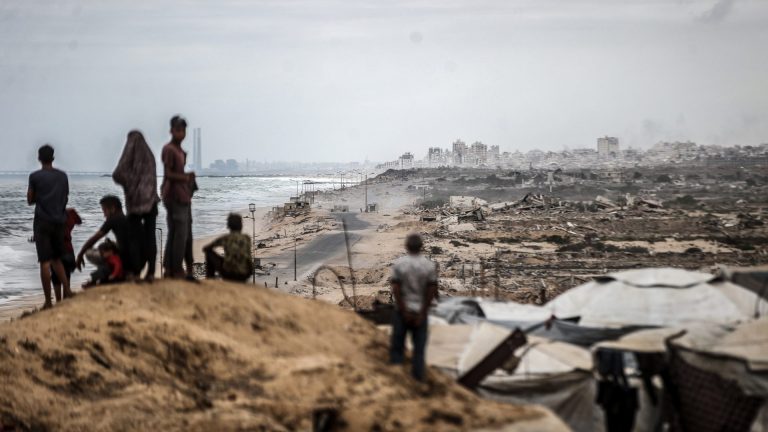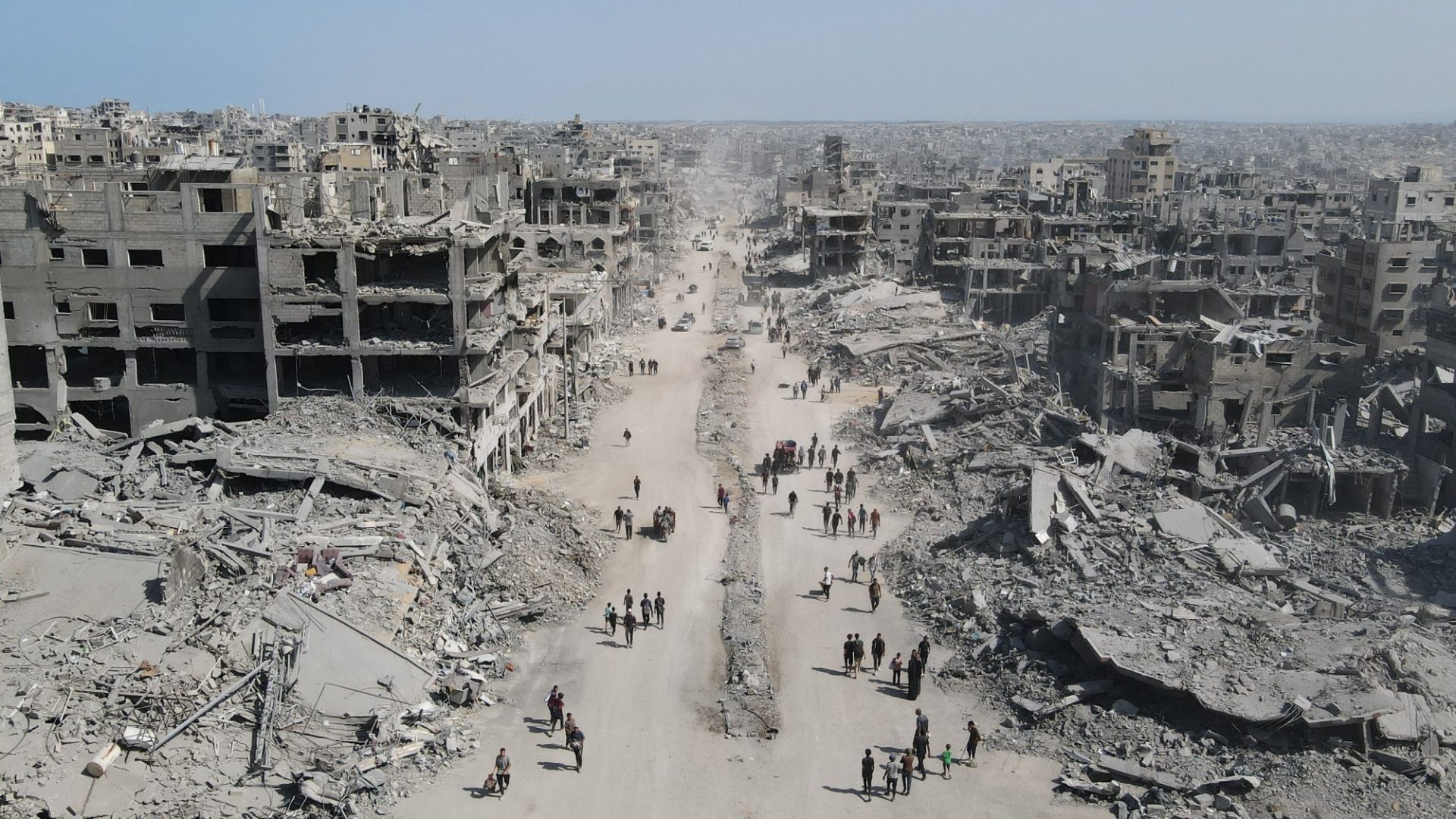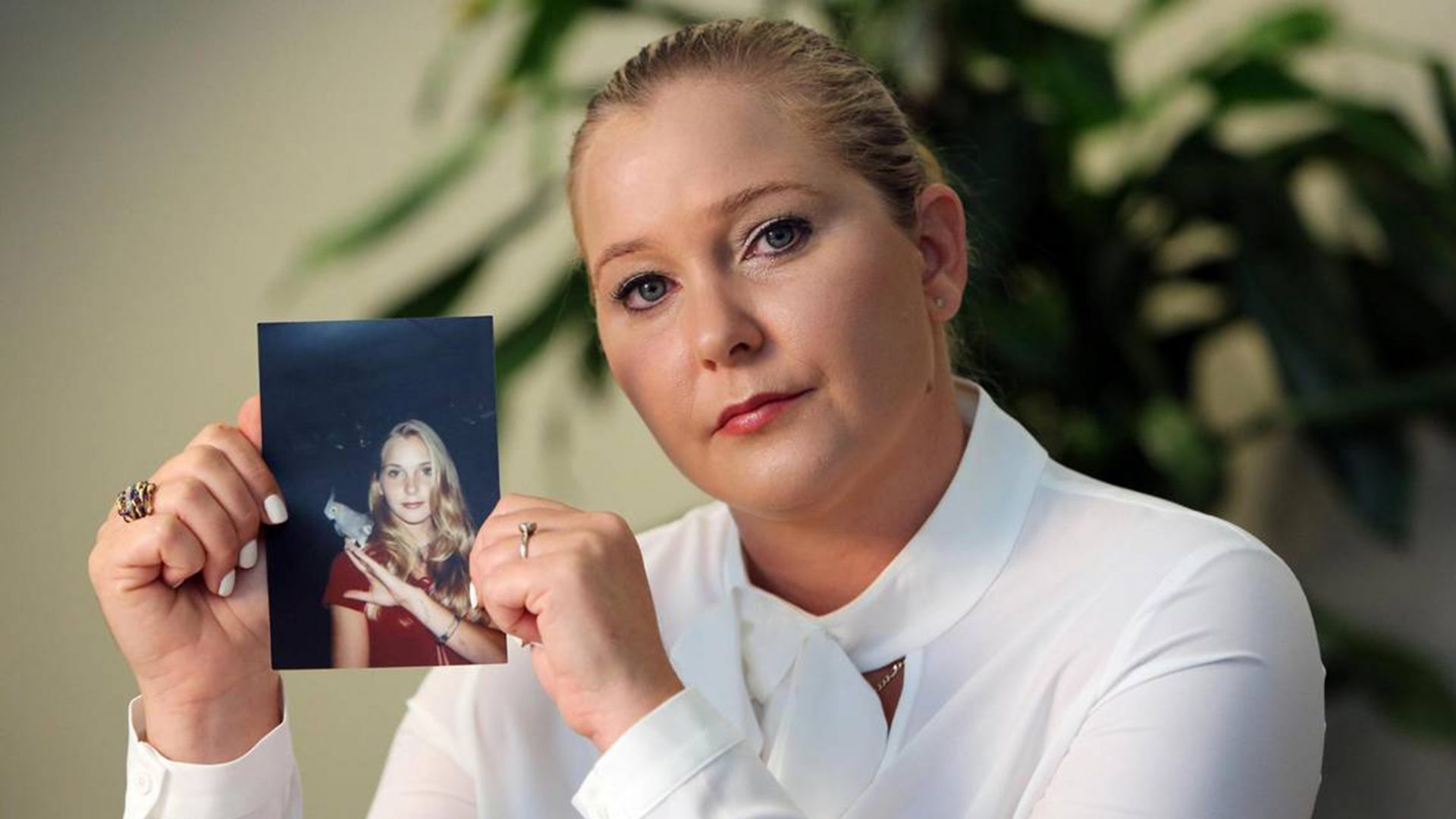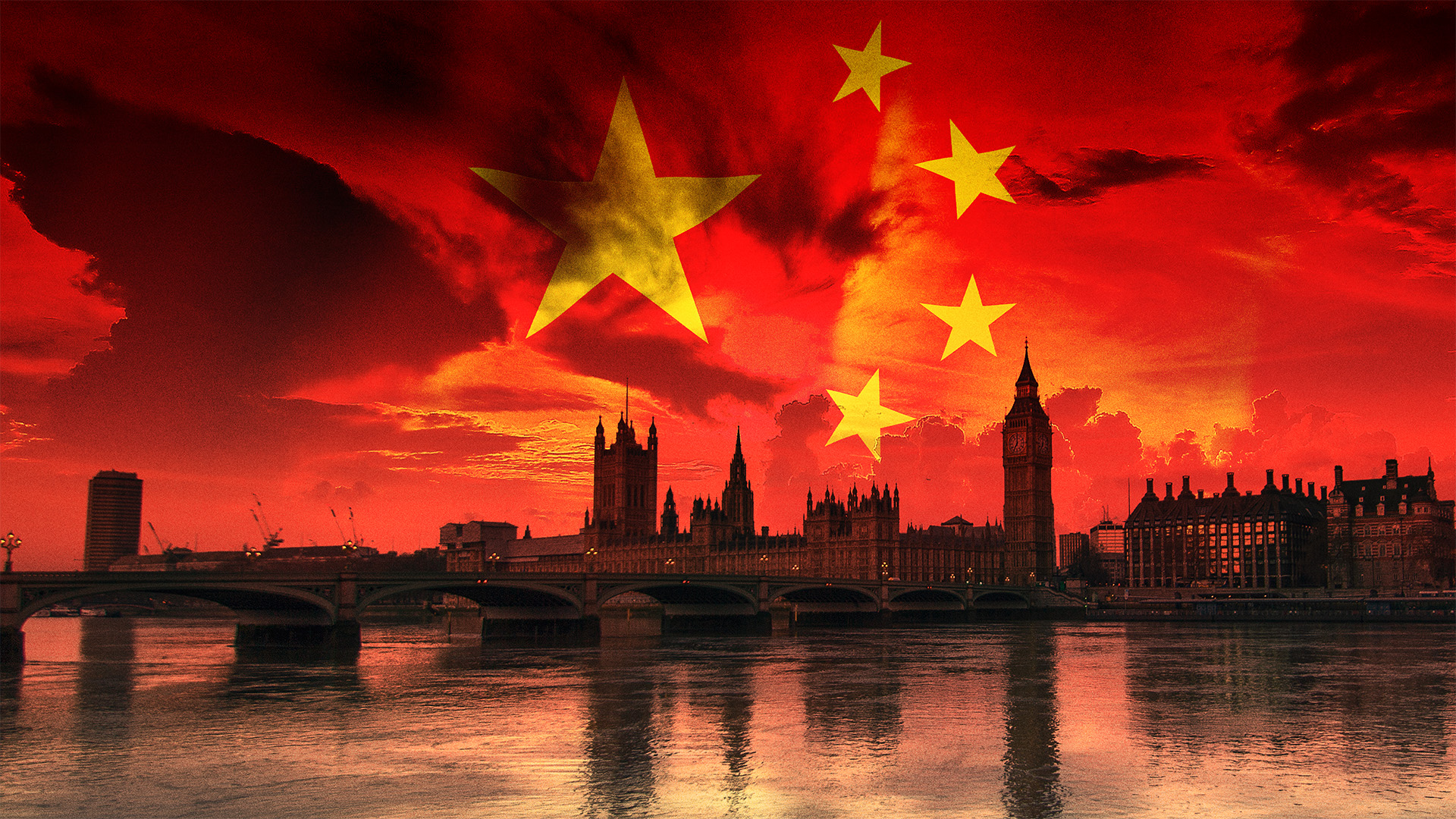First, the fog of war; next, the fog of peace. Indeed, is it even correct to call it “peace”?
On Sunday, Israel launched a wave of airstrikes on Gaza, retaliating after (according to the IDF statement) “terrorists fired an anti-tank missile and gunfire towards IDF troops operating to dismantle terrorist infrastructure”. After nightfall, Israeli forces announced that they had “begun the renewed enforcement of the ceasefire”.
Such a breach need not extinguish the peace process: in February 1996, the IRA ended an 18-month truce, but declared a second cessation of violence in July 1997, clearing the path to the Good Friday Agreement of April 1998. That said, this flare-up of hostilities, only 10 days after the Gaza deal was signed, underscores the intrinsic fragility of what has been achieved so far.
Last week, with much hyperbole, self-congratulation and geopolitical theatre, Donald Trump launched what may or may not prove to be a world-historic process of negotiation in the Middle East. At the Knesset in Jerusalem, by sheer force of personality, he convinced the entire Israeli political class to put its collective dabs on the deal.
At Sharm-el-Sheikh a few hours later, like the mob boss that he is, he encouraged regional leaders to wet their beaks and invest in the undoubted economic opportunities that peace would nurture. In a moment worthy of the Cringe Hall of Fame, Keir Starmer mistook the occasion for a summit of the international liberal order and imagined he was being invited to make a speech at the podium. But this was not a summit; it was a bazaar.
Having set the table, the president flew back to Washington to pursue the separate project of turning the US into an autocracy. What remains to be accomplished in Gaza is daunting in scale and scope.
In his indispensable book Talking to Terrorists: How to End Armed Conflicts (2014), Jonathan Powell, an architect of peace in Northern Ireland, veteran of many negotiations and now UK national security adviser, has an entire chapter entitled: “Only Implementation Creates Trust”.
After the pageantry of the Trump visit comes the praxis that will determine whether the negotiations succeed or fail. Every such process is enveloped by the noise of recrimination, rhetoric and resentment. As Lloyd George remarked when he was embroiled in talks over Irish Home Rule, “the most difficult negotiations are always with your own side” – and the Gaza talks have the added distinction of being the first such major process of the social media age.
But the oxygen of peace is practical progress. Right now, the highest priority is that Benjamin Netanyahu does all he can to allow aid into Gaza; most urgently by opening the Rafah crossing between the strip and Egypt (still closed at the time of writing).
It is entirely understandable that Israelis are exasperated and outraged by the failure of Hamas to return the remains of all the dead hostages. But it is also plausible that the terrorist group does not know where the bodies are, amid the 60m tonnes of rubble. Netanyahu has the opportunity here to build confidence by accepting this dismal reality and removing all Israeli obstacles to the food, medication and basic supplies that the Gazans so desperately need.
Alongside the humanitarian emergency is the strategic question of security and basic order in Gaza. The dictates of practical necessity meant Trump was correct last week to give temporary political cover to Hamas, horrendous as its acts of retribution have been.
“They did take out a couple of gangs that were very bad– very, very bad gangs,” he said on October 14. “And they killed a number of gang members. And that didn’t bother me much, to be honest with you.”
This, do not forget, is a president who has claimed (falsely) that MS-13 and Tren de Aragua control whole neighbourhoods in American cities. Not for the first time, he has arrived at the right conclusion for the wrong reason. At present, Hamas is providing the only governance that Gaza has – if “governance” is the right word for its brutal methods.
Yet, by any measure, this is a last-resort stopgap. Self-evidently, a new authority is required, and very rapidly so. But who or what will step into the breach? Article 9 of the peace plan proposes that “Gaza will be governed under the temporary transitional governance of a technocratic, apolitical Palestinian committee” – which is a good idea, with almost no basis in present reality.
Peace processes depend on personalities as much as procedures. This is why the Americans did not depose the emperor Hirohito after the second world war, conscious that his continued presence on the throne would reassure the Japanese as the arduous task of reconstruction began.
It is also why the UK government did not seek to prosecute the late Martin McGuinness for his actions as IRA chief of staff: his role both as negotiator and, prospectively, a key figure in Northern Ireland’s new government was too important.
The Palestinians badly need such representation if the current talks are to have legitimacy in their eyes. Israel should release (amongst others) Marwan Barghouti, the Fatah political leader imprisoned for terrorist offences since 2004. In opinion polls, he has consistently been shown to be the only figure who stands a chance of bringing the multiple Palestinian factions into some sort of harmony.
It is good that Mahmoud Abbas, the president of the Palestinian National Authority, was present at last week’s jamboree in Sharm-el-Sheikh. But Abbas is a discredited figure and 89 years old.
Whether or not Barghouti is, as some claim, “Palestine’s Mandela”, his liberation would give the Palestinians a potential figurehead and reduce the sense that they are being excluded from the process. If the US and Israel want the people of Gaza to stop supporting Hamas, they need to give them a choice – which means taking the risk of releasing prominent prisoners.
Perhaps the most bitter pill of all for Israel will be accepting that, in practice, disarmament is almost never swift and certainly never complete. Indeed, the word itself is usually a barrier to progress – as Powell notes, it “smacks of surrender” – which is why the Northern Ireland peacemakers spoke of “decommissioning”, as does the current plan for Gaza.
Suggested Reading


This deal is a calamity for Gazans
In 2004, an Independent Monitoring Commission was established to ensure that republican and loyalist paramilitaries put their weapons “beyond use” (another phrase replicated in the Trump plan). It is reasonable of Israel to expect Hamas to give up or destroy its remaining Qassam rockets and artillery. But there is little point chasing every last AK-47.
And there is no need to make this an immediate priority. Powell again: “Removing weapons guarantees nothing, because armed groups can always acquire more,” and is “normally best at the end of the process, not at the beginning.”
The flipside will be a readiness among Palestinians to accept that, in such a process, accountability is always imperfect. Article 6 promises amnesty to Hamas members who commit to peace. In such circumstances, it is hard to envisage Israelis accepting the trial of Netanyahu and others at the international criminal court (ICC).
This is, of course, hugely controversial. But Powell, recounting how the ICC’s actions became an impediment to talks in Uganda 20 years ago, poses the right question: “[A]re we really prepared to sacrifice lives for an abstract legal point? Whatever the new legal norms, the balance of benefits in my view clearly points towards favouring peace and the lives that will be spared by ending conflict rather than too doctrinaire an approach to justice.”
Next up: economic investment. As easy as it is to mock the central role played in the process so far by three New York businessmen – Trump, his special envoy Steve Witkoff and his son-in-law and former adviser Jared Kushner – it is also a mistake. Witkoff and Kushner were quite content, with the president’s blessing, to meet and shake hands with Hamas officials: a step that conventional politicians and diplomats would never have taken.
Also, and very regrettably, traditional international development resources are dwindling fast. Trump’s closure of the United States Agency for International Development (USAID) in July was an act of moral vandalism. It was also, unfortunately, in line with a global trend.
Under David Cameron, the UK’s budget for international aid was fixed at 0.7% of GDP. In November 2020 when chancellor, Rishi Sunak reduced that figure to 0.5%.
In February, Starmer announced that the increase in UK defence expenditure to 3% by 2027 would be partly funded by the reduction of international development spending to 0.3%: much of which is already allocated to housing asylum seekers. The cupboard, in practice, is bare.
This means that Gaza’s future depends disproportionately upon regional public funding – money from the Gulf, primarily – and global private investment. Deal-makers like Witkoff and Kushner will be better at brokering such partnerships than diplomats from the State Department.
This will be a huge task, even in optimal conditions. Investors, like spies, operate on the basis of probabilities. How likely is it that the ceasefire will hold?
Thus do we return, as always, to the vexed question of nation-building.
In a speech in Riyadh in May, Trump scorned the ambitions of right wing neocons and liberal interventionists. “In the end,” the president said, “the so-called nation-builders wrecked far more nations than they built, and the interventionalists were intervening in complex societies that they did not even understand themselves. They told you how to do it, but they had no idea how to do it themselves.”
This message was rapturously received by his audience, but also chimes with US public opinion. The slogan “America First” is indeed most treasured by the MAGA movement. But it is the most pointed expression of a bipartisan sentiment, nurtured by the post-9/11 “forever wars”. It was a Democrat president, Joe Biden, who withdrew the US, in ignominious fashion, from Kabul in August 2021.
Biden never recovered politically from this shambolic episode. Yet – in truth – his actions were consistent with the war-weariness of the American electorate and its hostility to further international entanglements.
Trump’s opposition to such foreign adventures has been at the core of his political message. Yet – much to the alarm of MAGA’s ultra-nationalist, anti-Zionist wing – he now finds himself embroiled in a bold project to solve a geopolitical dilemma that has defeated his predecessors for decades. Ironies do not come much sharper.
In the 2006 collection of essays, Nation-Building: Beyond Afghanistan and Iraq, the volume’s editor, Francis Fukuyama, observes “how little institutional learning there has been over time; the same lessons about the pitfalls and limitations of nation-building seemingly have to be relearned with each new involvement.”
This is absolutely correct, and all the more applicable in the case of the Trump administration, which is actively suspicious of institutional memory – the loathed culture of the “deep state”. The essence of Trumpism is the conviction that only Trump is right; or, as he put it in Sharm-el-Sheikh, “I’m the only one that matters”.
All the same: those who pursue these negotiations should take Fukuyama’s advice and learn from the mistakes of the past. They could do worse than dig out Presidential Decision Directive 56 (PDD 56) of May 1997 from the Clinton era, which summarised the lessons of peacekeeping in Somalia, Haiti and elsewhere.
Among its core recommendations: “develop strategies for early resolution of crises, thereby minimizing the loss of life and establishing the basis for reconciliation and reconstruction”; “accelerate planning and implementation of the civilian aspects of the operation”; and “intensify action on critical funding and personnel requirements early on”.
So far, this peace process has been driven by US political might. Trump’s fury over Netanyahu’s bombing of Doha on September 9 undoubtedly expedited the deal, as did the president’s promise that the US would not allow Israel to annex the West Bank, and his pledge to give Nato-equivalent security to Qatar.
But what has been a strength so far will be a vulnerability in the future. As things stand, the international stabilisation force will be composed of troops deployed by nations such as Egypt, Turkey, the United Arab Emirates and Indonesia – operating, however, under the umbrella of US CENTCOM and Admiral Brad Cooper. It is hard to see how this arrangement is sustainable.
Indeed, the greatest absence in the mix is supranational oversight. At the time of writing, the UN security council has not even passed a resolution concerning the peace process – though the deal was announced on October 8. At Sharm-el-Sheikh, António Guterres, the UN’s secretary-general, looked like somebody’s socially awkward uncle at a wedding rather than a key player.
If international institutions do not step up to the plate, the peace process will remain, in practice, Trump-owned. It should hardly need to be said that such an arrangement is not a recipe for stable, patient, detail-oriented, strategic negotiation.
It should not need to be said that, unless international bodies rush to oversee this precarious peace, its prospects of success will be entirely dependent upon the whim of the world’s most capricious leader.
But – apparently – it does need to be said.




